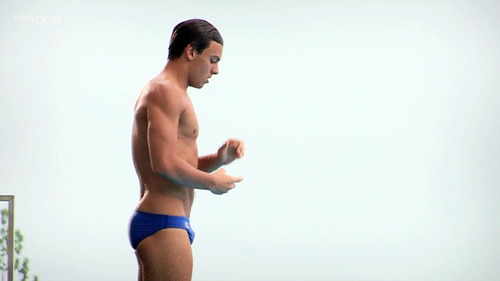The trials are going to be a cracker,” a sanguine Yohan Blake said in early June about the Jamaican Olympic trials, which were then still three weeks away. He was right. Not only did he run the fastest times of the year to win the 100- and 200-meter races there, but Blake defeated Usain Bolt, the defending Olympic champion and track and field’s only household name, in both.
“Once you could say I was in [Bolt’s] shadow, because he was the man,” Blake, who is 22, said last month. Then he quickly corrected himself. “He is the man of track and field.” He needn’t have bothered. Everyone in the room had heard him. Bolt had company.
Blake, who will compete for the last time before the Olympics at 100 meters on Tuesday in Switzerland, was raised in a modest home in Montego Bay, Jamaica. “We didn’t grow up with a golden spoon in our mouth,” he told Vanity Fair recently. When he was young, he and his uncle moved across the island to Old Harbour to try to make a better life. When Blake was 15 and already a success at cricket, a school principal recognized his track potential. “From that day, I transformed into this ‘Beast’ that they call me today,” he said, referring to his nickname. (A true poly-athlete, Blake intends to play cricket professionally once his track career is over.)
Three years later, Blake joined Bolt’s training team. And three years after that, in 2011, he ran in his first world championship in Daegu, South Korea. After Bolt famously false-started in the 100 meters and was disqualified, Blake went on to become the youngest gold medal winner in the event’s history. Two weeks later in his last race of the season, he became the second-fastest 200-meter runner ever, when he ran 19.26 seconds, missing Bolt’s world record by a mere .07 of a second.
This season, however, Blake started out slow.
“I saw Blake run in Kingston in May, and he looked like I used to feel when I was lifting a lot of weights,” says four-time Olympic sprint medalist and NBC sports commentator Ato Boldon. “But I understand what he does now. He loads up in the weight room and gets strong as hell. When you come out of that weight room, you’re not going to feel fast immediately because you’re really bulky. As you run and run and run, you start to reap all the rewards of doing all that work. Did I think he was going to run 9.75 [seconds] at the trials and beat Bolt? No. I figured it would take a little longer. But the future is now.”
For Bolt, who is 25, Blake’s growth may be disquieting. Less than a week after the trials, Bolt pulled out of a meet in Monaco due to a minor injury. The withdrawal sent the rumor mill into overdrive. Bolt’s camp waved it off as nothing, insisting he would be ready to race—and win—by the time he gets to London. Still, entering the Olympics off two straight losses makes his future unclear. Previously, he’d lost only one race in nearly four years.
The fact that those same losses at the trials were to Blake might also factor in. Boldon, who was often on the losing end of races against his training partner, Maurice Greene, in the 1990, knows something about the experience. “I understand what that’s like in terms of the psychology,” Boldon says. “The trials shifted the balance of power. Bolt knows, one, my shenanigans and antics don’t faze Blake one bit, and two, I’ve got a little bit of doubt in my mind as to whether I can really beat this guy.”
Bolt, who recently gained attention for his late-night partying may need to work harder than he ever has before to match Blake’s physical strength, though he still won’t be able to outwork Blake. After all, Bolt is the very person who dubbed him “the Beast” because of his intense training. In fact, one of the few times Blake can recall skipping practice was when Michael Jackson died. “I didn’t go train for a week,” Blake said. “I cried.”
Despite Blake’s victory in the trials, he still knows Bolt will be the favorite in London. Yet he remains undaunted. “I’m a person like this,” he said. “I can just get up, Coach can wake me in the morning and say, ‘I need nine seconds from you,’ and I will start sprinting.”
Since Blake and Bolt are training partners, Blake may already know how many seconds he needs to win by in the Olympics. “Blake will be able to see Bolt in practice,” Boldon says. “That is extremely good for Blake. Whether or not he says it or shows it, he will go into London already knowing if he has a real shot or if Bolt has somehow fixed things and is as invincible as he was in Beijing.”













